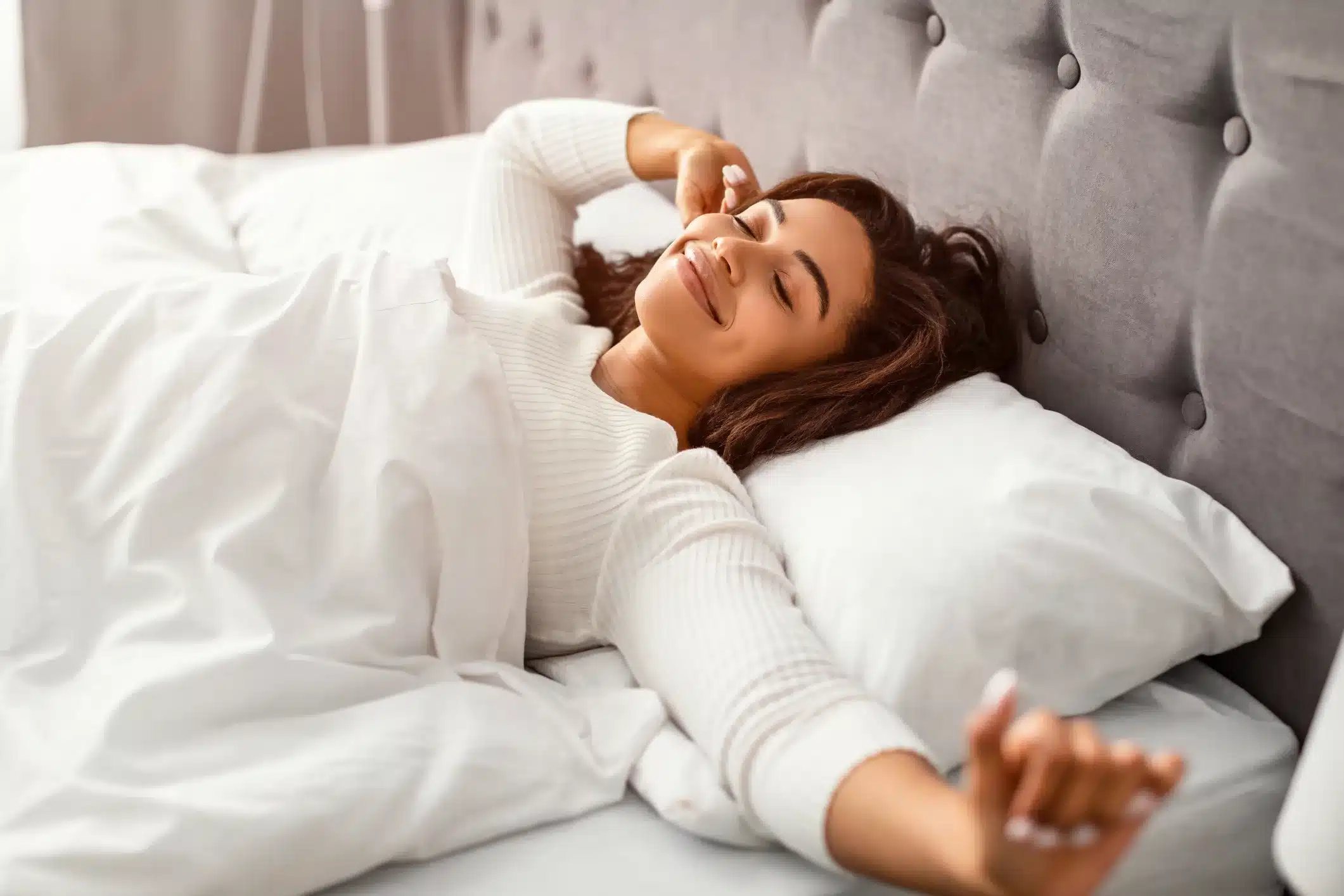
Healthy Habits for Quality Sleep
Healthy lives start with healthy sleep, but studies show that one third of adults only get less than seven hours of sleep every night. So how do you get good quality sleep? MainStreet has you covered with some tips you won’t want to sleep on.
How Much Sleep Should I Get?
The amount of sleep you should get depends on your age. According to Medicine Plus, adults should ideally get seven to eight hours of sleep per night. That number changes for children and teenages based on their ages, but kids should strive for eight or more hours of sleep per night.
What Affects My Sleep?
Just because you slept for eight hours doesn’t mean you got restful sleep for all that time. Restful sleep happens in the third and fourth stages of sleep. If you find yourself waking up frequently throughout the night, you might not be reaching these restful stages of sleep.
Medications, diet and overall wellness can affect the quality of your sleep, but the American Academy of Sleep Medicine states that the way you spend your days and evenings can have a great impact on your sleep, too.
Illnesses such as the common cold can make sleeping difficult. MainStreet can help with that! We treat all kinds of common illnesses through our urgent care services.
Forming Healthy Sleep Habits
The best way to improve your sleep is to enhance your bedtime routine. Check out some of MainStreet’s best bedtime tips to improve your sleep!
Tip #1: Limit Screen Time and Bright Lights Before Bed
Exposure to bright lights like phone or computer screens can lead to a pattern of disrupted sleep, and the same goes for bright lights in rooms around your home. Experts recommend that you stop your exposure to these types of lights and screens at least one hour before bed every night.
Tip #2: Create A Solid Sleep Schedule
Good quality sleep relies on your sleep and wake cycles, also known as your circadian rhythm. Sleep schedules are a great way to regulate these cycles, ensuring that you always get the best sleep possible. Try to go to bed and wake up around the same time every day – even on the weekend. Limit naps throughout the day, and if you need one, try to keep it under 30 minutes.
Unsure on how to create a sleep schedule? Start by listening to your body! Take note of the time you begin to feel sleepy every night, and go to bed at that time each night.
Tip #3: Don’t Force Sleep
Did you know that it’s better for your body to sleep only when you feel sleepy? Tiredness is the body’s way of communicating that you need to sleep. Trying to sleep when you don’t feel tired can be frustrating though. If you have trouble sleeping after 20 minutes, get up and do a calm activity with little light.
Tip #4: Avoid Caffeine and Alcohol Before Bed
Consuming caffeine late in the day can contribute to dysregulated sleep at night. To reap the benefits of a full night’s rest, stop caffeine intake in the early afternoon.
You should also avoid alcohol close to bedtime. Alcohol might make you sleepy, but it can disrupt your circadian rhythm and cause a shorter sleep-wake cycle. To avoid this, cut out the night cap and opt for a cup of herbal tea instead.
Tip #5: Get Active!
You can always ensure better sleep by getting some exercise! At least 30 minutes of exercise a day can decrease excess energy and make you more tired at night. This can include walking, running, playing sports, or participating in group fitness. Find your favorite, and stick to it!
Turn To MainStreet Family Care
Dealing with sickness that’s making it hard to sleep? MainStreet Family Care can help you heal and feel better fast!
To visit one of our clinics, register online. You’ll be able to wait from home or in your car until we’re ready to see you. We’ll send you a text when it’s time to head to the clinic.
Didn’t register ahead of time? No worries! We accept walk-ins daily. However, please be aware that walk-ins may experience longer in-clinic wait times.






